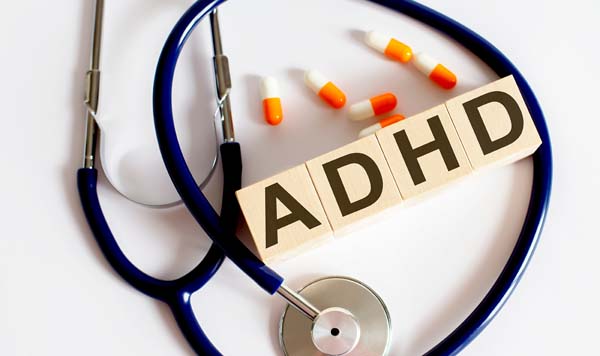PTSD TreatmentAltamonte Springs, FL
Post-traumatic stress disorder (PTSD) treatment is available to help people improve their symptoms. Patients can process and make sense of their traumatic experiences healthily and productively with the right treatment plan. You do not have to handle PTSD on your own.
PTSD treatment is available at Florida Psychiatric Associates in Altamonte Springs and the surrounding area. Our team is here to support and guide you throughout the treatment process. Call us today at 407-960-5633 to learn more about our services or schedule an appointment.
Understanding PTSD
PTSD is a type of anxiety disorder that a person can develop after experiencing or witnessing a deeply shocking or dangerous event. According to the Anxiety and Depression Association of America (ADAA), more than 8 million Americans over the age of 18 have PTSD. This disorder can cause significant issues for people at school, work, or in relationships with others.
Without treatment, PTSD can prevent people from living normal, productive lives. People experiencing troubling thoughts or feelings for more than a month after a traumatic event should seek help. Our team works with patients to determine the optimal treatment plan to overcome their symptoms.
Symptoms
The onset of PTSD symptoms will vary for each person. While some people will begin to experience PTSD symptoms within a month of a traumatic event, others may not experience symptoms until years later. There are four categories of PTSD symptoms:
- Avoidance: People with avoidance symptoms may avoid thinking or talking about the traumatic event and avoid places, people, or activities that remind them of it.
- Changes in physical and emotional reactions: PTSD can cause people to have arousal symptoms such as being easily startled or scared, feeling irritable or guilty, engaging in self-destructive behaviors, or having trouble concentrating or sleeping.
- Intrusive memories: Intrusive memories involve people with PTSD experiencing recurring and unwanted memories, flashbacks, dreams, and nightmares about the traumatic event.
- Negative changes in thinking and mood: Symptoms of negative thinking and mood changes include feeling hopeless about the future, detached from family and friends, and lacking interest in previously loved activities.
Preparing for Treatment
Before the first PTSD treatment, patients should prepare information about their personal and medical history. A psychiatrist will use this information to determine the optimal treatment plan for their needs. Patients should expect to share information about the key events or experiences that may have caused them to feel extreme fear or disturbing thoughts.
It is also important to gather information about other physical or mental health diagnoses and medications or supplement dosages. This information will help keep patients safe during treatment. Preparing questions for the psychiatrist before an appointment can help people make the most out of their session. Our team is here to address any questions or concerns you may have throughout your time in our care.
Treatment Options
Since every person is different, the type of PTSD treatment that is effective for one person may not work for another. Our team will develop a personalized treatment plan for each patient. It may be necessary to try multiple treatments or a combination of treatments to find what works best for a patient’s needs. The main treatments for PTSD are short-term psychotherapies such as cognitive-behavioral treatment (CBT) and drugs including antidepressants and anti-anxiety medications.
CBT is a kind of psychotreatment that teaches people to identify, understand, and change their thinking and behavioral patterns. CBT for PTSD treatment may include cognitive processing treatment (CPT), prolonged exposure (PE), and stress inoculation treatment (SIT). CPT aims to help patients recognize and reevaluate trauma-related thinking, while PE utilizes behavioral treatment techniques to help patients address trauma-related memories, situations, and emotions. SIT teaches patients coping skills to deal with stress and anxiety from PTSD.
Benefits of PTSD Treatment
Receiving prompt PTSD treatment can help patients regain control of their lives and prevent symptoms from worsening. Receiving the right treatment plan can help patients manage their symptoms. Patients can gain skills to address their symptoms and healthily cope with them.
The right treatment can also help patients change their thoughts about themselves, the world, and the people around them. PTSD can make recovering from a traumatic event difficult, but seeing a psychiatrist can help patients handle the burden and overcome it. In many cases, PTSD treatment can get rid of a patient’s symptoms. Even if a person still has some symptoms after treatment, they will have the skills to cope with them.
Call Us Today
PTSD treatment can help patients regain control over their lives. Our team at Florida Psychiatric Associates will develop a personalized treatment plan for your needs. Call us today at 407-960-5633 to learn more about our services or make an appointment.
Frequently Asked Questions
How long does CBT for PTSD treatment take?
CBT treatments traditionally occur over 12 to 16 weeks. Patients typically attend weekly sessions that last 30 to 60 minutes. The treatment duration and frequency should match the patient’s presenting difficulties.
How can antidepressants and anti-anxiety medications help treat PTSD?
Antidepressants can help alleviate depression and anxiety symptoms that typically accompany PTSD. Anti-anxiety medications can also help relieve severe anxiety and associated issues. However, patients may only be able to use anti-anxiety medications for a short time since they have the potential for misuse.
How should I prepare for my first appointment for PTSD treatment?
Patients should prepare some information before their first appointment for PTSD treatment. This information includes relevant personal information about experiences that have caused feelings of fear or helplessness. It is also important to gather information about your medical history, such as other physical or mental health conditions and medications currently taken.
How is PTSD diagnosed?
Diagnosing PTSD may include a physical exam and a psychological evaluation. The physical exam can rule out any medical problems that may be causing a patient’s symptoms. A psychological evaluation typically involves discussing a patient’s signs and symptoms and the experiences that have led up to them.
What are some possible causes of PTSD?
People diagnosed with PTSD must have experienced exposure to an event that involved the possible or actual threat of injury, violence, or death. Exposure can happen through experiencing or witnessing a traumatic event. It can also occur if a person learns someone close to them experienced a traumatic event or if they are exposed to the details of a traumatic event repeatedly.
Contact Us
Florida Psychiatric Associates is located at
498 Palm Springs Dr Ste 100-127
Altamonte Springs, FL
32701





